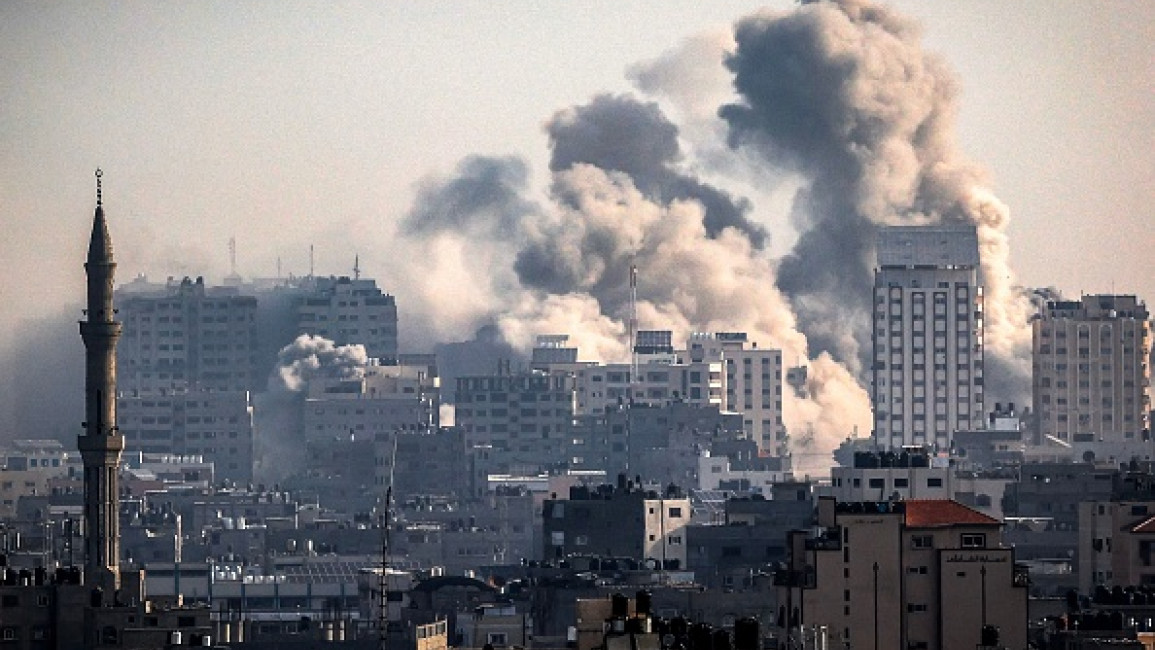IMF and World Bank warn of inflation, oil crisis amid Israel's new war on Gaza
As escalations between Israel and Hamas mark the sixth day, the International Monetary Fund (IMF) and World Bank warn of rising oil prices and inflationary pressure amid a "new cloud' darkening not-the-sunniest horizon for the world economy."
"We are closely monitoring how the situation evolves, how it is affecting, especially oil markets," Kristalina Georgieva, IMF's Managing Director, told a press conference Thursday in Marrakech, Morocco, during the annual meetings of the IMF and World Bank.
On Tuesday, Pierre-Olivier Gourinchas, the IMF's chief economist, said it's "too early" to assess the impact on global economic growth from the sive-day-old conflict.
But he said the IMF was "monitoring the situation closely" and noted the rise in oil prices when the conflict began.
Meanwhile, World Bank President Ajay Banga said that the "Israel-Hamas conflict is an unnecessary human tragedy and global economic shock" will make it harder for central banks to achieve soft landings — a slowdown that avoids a recession — in many economies if it spreads.
"Central banks were beginning to feel a little more confident that there was an opportunity for a soft landing, and this kind of just makes it harder," Banga said on the sidelines of the ongoing World Bank meeting in Marrakech.
On Monday, global benchmark Brent Crude rose 4.2 per cent to $88.15 a barrel, while US benchmark West Texas Intermediate rose 4.3 per cent to $86.38 per barrel.
Prices on Tuesday eased slightly, with West Texas Intermediate and Brent Crude falling 35 cents and 36 cents, respectively.
Though Palestine and Israel don't produce much oil, the worry is that the war could turn into a regional conflict and spill into the politics around the crude market.
The Middle East is home to some of the world's biggest oil producers, including Iran and Saudi Arabia, and key transit routes such as the Strait of Hormuz, known as the world's most important "oil chokepoint".
In 1973, Gulf countries announced the Arab oil embargo, a temporary cessation of oil shipments from the Middle East to the United States, the Netherlands, Portugal, Rhodesia, and South Africa in retaliation for support of Israel during the Yom Kippur War (the October War).
However, a similar decision now remains unlikely amid the pro-normalisation politics in most of the region.
However, consequences might be severe if the conflict draws in Iran, an oil-rich country and an ally of Hamas and Lebanon-based armed group Hezbollah.
In an interview with CNBC on Monday, Rapidan Energy Group President Bob McNally said that oil prices could surge by US$5 to US$10 a barrel if Iran were drawn into the conflict.
On Monday, Hezbollah said it had fired a barrage of rockets after at least three members were killed during an Israeli bombardment amid rising border tensions. Israeli soldiers mobilised along the Lebanese border after a false alert Wednesday evening, where there were reports of a possible infiltration.
Iran has denied involvement in Hamas's surprise attack on Israel on Saturday, though it congratulated Hamas. The US and Israeli military have seen no evidence to support Iranian involvement.
Any evidence of Iranian involvement in the Hamas attack would likely cause a setback to nuclear negotiations with Washington, potentially leading to further US sanctions on Iranian energy.
Around 150 Israelis, foreigners and dual nationals were abducted to the Gaza Strip by Hamas militants as part of the Saturday surprise attack that killed more than 1,200 people in Israeli towns around the enclave.
Israel has, in turn, launched a ferocious and indiscriminate air campaign against the besieged Gaza Strip, flattening entire districts and killing over 1,200 people.
Tel Avi has also announced a "complete siege" on Gaza, cutting off water, fuel and electricity supplies. The Palestinian territory's sole power plant shut down on Wednesday after running out of fuel.
Israeli Energy Minister Israel Katz vowed Thursday to bar the entry of fuel and humanitarian aid into Gaza until Hamas releases all captives.



